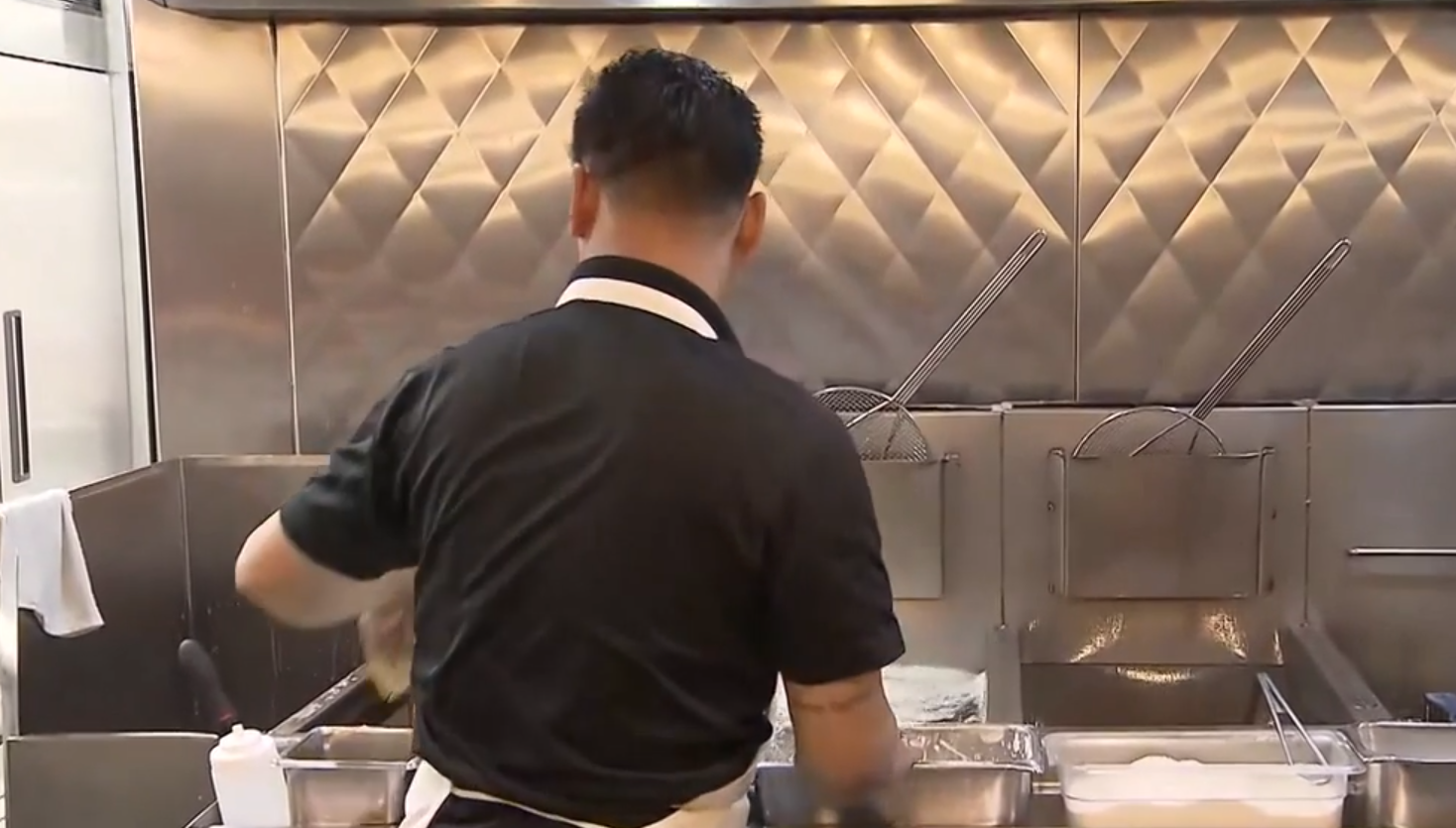Top Stories
Industry Leaders Challenge Calls to End B.C.’s Foreign Worker Program

Industry leaders in British Columbia are responding to recent statements from Premier David Eby regarding the temporary foreign worker (TFW) program. Eby, alongside federal Opposition Leader Pierre Poilievre, has suggested that the program should be scrapped or reformed, citing its alleged connection to high youth unemployment rates in the province.
During a press conference earlier this week, Eby attributed the province’s youth unemployment rate of 12 percent to various immigration programs, including international student visas and the TFW program. Many stakeholders within the hospitality sector, however, argue that this perspective is misguided.
Concerns from the Hospitality Sector
Brad Macleod, president and managing partner of C-Lovers Fish and Chips, emphasized that the narrative surrounding TFWs as a means of obtaining cheap labor is inaccurate. “It costs us $5,000 to $8,000 to bring in a foreign worker. We pay the same wage,” he stated. Macleod criticized the government’s approach, suggesting that it has turned the issue into a political tool while neglecting the complexities of labor shortages.
According to the BC Restaurant and Foodservices Association, approximately 200,000 restaurant employees work in British Columbia, with TFWs accounting for only around 3 percent of that workforce. Macleod noted that C-Lovers currently employs two TFWs and struggles to fill essential kitchen positions. “We cannot find kitchen staff. We need daytime workers, and students can’t fill those spots,” he explained.
Removing the TFW program, Macleod warned, could lead to a decline in service quality within the hospitality industry. “In a year, you’re going to see lower services, you’re not going to get quality service, food will take longer because we’re not going to have the staff,” he added.
Construction Industry Perspectives
In contrast, some leaders within the construction industry have highlighted abuses of the TFW program by certain employers. Doug Parton, business manager for Ironworkers Local 97, stated that “bad-faith employers” have exploited the program, often hiring TFWs at significantly lower wages, which undermines employers who invest in local training and apprenticeships.
“You lose out on the bid because you’re not competitive anymore,” Parton remarked, pointing to a distortion in the labor market that affects those committed to developing Canadian workers.
The debate over the TFW program has reached the federal level, with Prime Minister Mark Carney indicating that the government will review its structure. Carney acknowledged the importance of the program in maintaining the workforce across Canada but did not specify any immediate changes.
As discussions continue, the implications of these proposed reforms remain significant for businesses and workers alike in British Columbia. Industry leaders are urging a careful examination of the TFW program, emphasizing its role in filling critical labor shortages while addressing concerns about potential exploitation within the system.
-

 Education4 months ago
Education4 months agoBrandon University’s Failed $5 Million Project Sparks Oversight Review
-

 Science5 months ago
Science5 months agoMicrosoft Confirms U.S. Law Overrules Canadian Data Sovereignty
-

 Lifestyle5 months ago
Lifestyle5 months agoWinnipeg Celebrates Culinary Creativity During Le Burger Week 2025
-

 Health5 months ago
Health5 months agoMontreal’s Groupe Marcelle Leads Canadian Cosmetic Industry Growth
-

 Science5 months ago
Science5 months agoTech Innovator Amandipp Singh Transforms Hiring for Disabled
-

 Technology5 months ago
Technology5 months agoDragon Ball: Sparking! Zero Launching on Switch and Switch 2 This November
-

 Education5 months ago
Education5 months agoNew SĆIȺNEW̱ SṮEȽIṮḴEȽ Elementary Opens in Langford for 2025/2026 Year
-

 Education5 months ago
Education5 months agoRed River College Launches New Programs to Address Industry Needs
-

 Business4 months ago
Business4 months agoRocket Lab Reports Strong Q2 2025 Revenue Growth and Future Plans
-

 Technology5 months ago
Technology5 months agoGoogle Pixel 10 Pro Fold Specs Unveiled Ahead of Launch
-

 Top Stories4 weeks ago
Top Stories4 weeks agoCanadiens Eye Elias Pettersson: What It Would Cost to Acquire Him
-

 Technology3 months ago
Technology3 months agoDiscord Faces Serious Security Breach Affecting Millions
-

 Education5 months ago
Education5 months agoAlberta Teachers’ Strike: Potential Impacts on Students and Families
-

 Business1 month ago
Business1 month agoEngineAI Unveils T800 Humanoid Robot, Setting New Industry Standards
-

 Business5 months ago
Business5 months agoBNA Brewing to Open New Bowling Alley in Downtown Penticton
-

 Science5 months ago
Science5 months agoChina’s Wukong Spacesuit Sets New Standard for AI in Space
-

 Lifestyle3 months ago
Lifestyle3 months agoCanadian Author Secures Funding to Write Book Without Financial Strain
-

 Business5 months ago
Business5 months agoNew Estimates Reveal ChatGPT-5 Energy Use Could Soar
-

 Business3 months ago
Business3 months agoHydro-Québec Espionage Trial Exposes Internal Oversight Failures
-

 Business5 months ago
Business5 months agoDawson City Residents Rally Around Buy Canadian Movement
-

 Technology5 months ago
Technology5 months agoFuture Entertainment Launches DDoD with Gameplay Trailer Showcase
-

 Top Stories4 months ago
Top Stories4 months agoBlue Jays Shift José Berríos to Bullpen Ahead of Playoffs
-

 Technology5 months ago
Technology5 months agoWorld of Warcraft Players Buzz Over 19-Quest Bee Challenge
-

 Top Stories3 months ago
Top Stories3 months agoPatrik Laine Struggles to Make Impact for Canadiens Early Season










